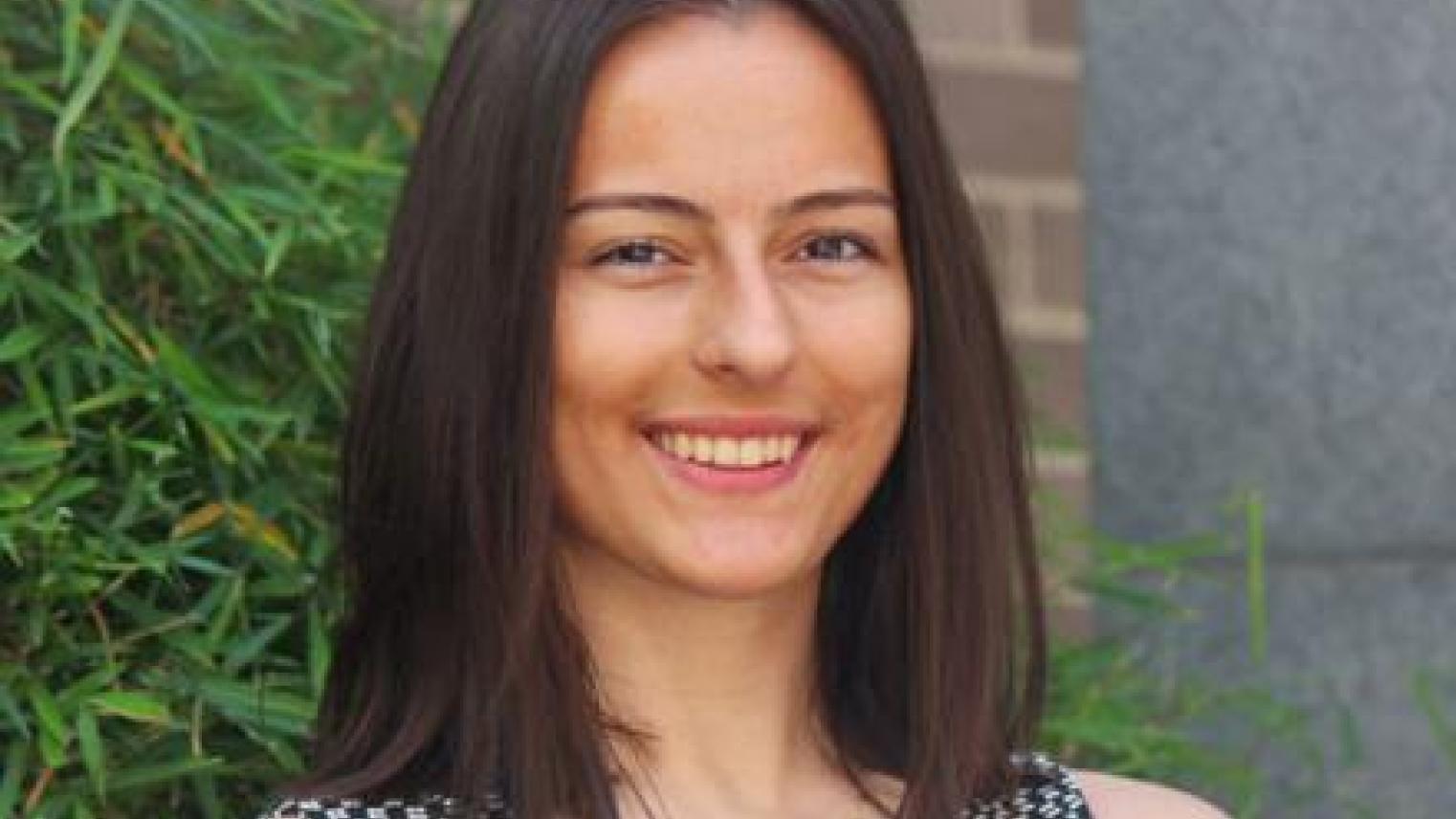Meet Nada Jevtovic

‘Why do people commit crime?’ ‘What drives someone to deviate from the ‘norm’?’ These sort of questions have fascinated Nada Jevtovic since she was ten years old. Fittingly, Nada is about to complete ANU RegNet’s Master of Criminology, Justice and Regulation (Advanced), following a Bachelor in Criminology from the ANU College of Arts and Social Sciences.
“My dad was in law enforcement and I was fascinated with what he did.” Nada explained. “I knew I wanted to follow in my dad’s footsteps, but I felt that my skills might be put to better use in research, as opposed to joining the force”, she continued.
Nada’s fascination with why people committed crimes, would soon develop into a passion and it wasn’t long before she had completed her undergraduate degree in criminology and decided to continue with postgraduate studies in the same field.
“During my undergraduate degree I fell in love with the ancient theory of criminology and weird evolutions of crime theory from criminologists like Beccaria to Lombroso. It was during that time, that I developed my appreciation for a more theoretical but extremely valuable side of criminology. By the end of my degree, I felt that I wanted to learn more especially regarding transnational crime.”
Nada said she decided to continue her postgraduate studies in criminology at ANU, because of its modern approach to criminology and ‘new age’ crime.
“At RegNet ‘new age’ issues like transnational crime, are looked at and approached from a perspective that deviates from conventional approaches. I think modernity and a futuristic outlook, especially when it comes to transnational crime, is a necessity.”
“RegNet offered this advanced approach to studying crime and the departments within it were comprised of academics and scholars with significant professional experience.”
“People like John Braithwaite, Peter Grabosky from ANU RegNet and Matt Manning and Adam Masters from ANU College of Arts and Social Sciences (ANU CASS) who have extensive experience with transnational crime, are able to give you not only ‘both sides of the story’ -so you gain a lot of insight- but also guidance on where you can improve and make the biggest impact” she added.
“I think that the lecturing experience is what I loved most. The academics were always available to listen and this is really important, because when you are still finding your feet in terms of research, it is good to have someone to run ideas by and keep you on the right track.”
Nada said that apart from her dad, her family’s history was another formative part of her life that elicited her appreciation for her being able to do what she loves.
“The biggest reward when studying crime and crime prevention, is knowing that the outcome is going to benefit a lot of people and increase their safety.”
“I am a second generation Australian. My grandparents fled to Australia after experiencing awful events back in Europe during and in the aftermath of WWII. With that family history I feel lucky to be here today, being safe and able to do what I love every day.”
“In a sense, I feel it is a responsibility for all of us to do our part to make the country better and safer, to keep it such a wonderful place to live in” she concluded. Nada Jevtovic said that when she was younger she never imagined she would complete a Masters’ degree. In fact, her Year 11 career’s advisor had conjectured that she would most likely not even get into university. However Nada, proved that passion and determination are keys to succeed.
“The Masters’ helped me recognise my skills and my value. I had great mentors and people who wanted me to shine and who gave me constructive feedback, so I was able to see my weaknesses and ways to improve.”
“Overall I have benefited greatly from my Masters. It was something I never thought I would do but I am very grateful for the experience. I hope to continue with a PhD and getting more professional and practical work experience in anti-money laundering agencies within Australia.”
Nada is currently in the process of completing her Master’s thesis in which she developed a taxonomy of some of the factors influencing effective Anti-money laundering (AML) compliance as part of her Master of Criminology, Justice and Regulation (Advanced) degree with RegNet under the supervision of Associate Professors Miranda Forsyth and Matthew Manning. She also tutors in criminology courses and works as a research assistant recently writting an article investigating the relationship between the impacts of international AML standards (Financial Action Task Force [FATF] 40 Recommendations) and membership to FATF-Style Regional Bodies on a countries’ AML security.
Are you looking to advance your skills in criminology? Find out more about the Master of Criminology, Justice and Regulation